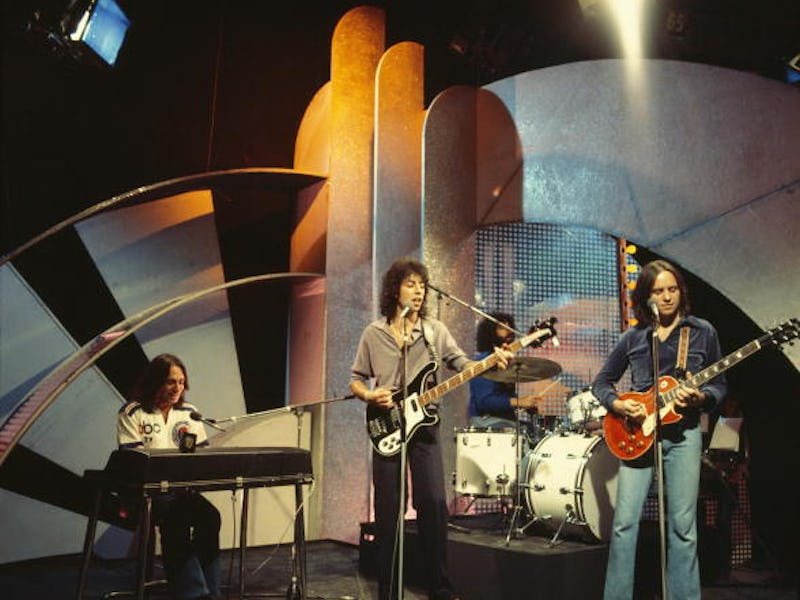10cc's Dazzling "I'm Not in Love," 40 Years Later
How the unlikely pop stars created the moody, out-of-time sound of one of the greatest songs of the 1970s

British prog-pop band 10cc’s “I’m Not in Love” — in sum, the most popular song on the worldwide charts at this time 40 years ago — might reasonably be considered the “Strawberry Fields Forever” of that decade. It’s equal parts beautiful, strange, and catchy; in terms of arrangement and texture, it possesses a quality which has few correlates in music at large.
Like the formative, most psychedelic Beatles work, the song exemplifies an instance in which an extremely complex studio technique was worth the soul-sucking amount of time and energy it required. 10cc’s complex process manifested strikingly beautiful sounds that would be otherwise inaccessible or even imaginable.
To create the song’s unusual sound, the band basically used a makeshift sampling technique before samplers existed. The band created tape loops of hazy backing vocals, built from more than 250 vocal tracks. The base track for the song was just electric piano and a bass drum; later, the heavily layered vocal samples were added on top, faded in one by one from the mixing console.
As is the case with any unprecedented experiment, there were unexpected side effects. In the case of 10cc, the main accident was a happy one: The deterioration of sound quality due to the heavy layering and redubbing of tape gave the backing vocals a haunting, slightly distorted edge. Rather than roughening the mix, it causes the track to shimmer, and enhances its otherworldly quality. It’s hard to imagine a computer music interface or sampler being able to recreate this frayed, warm sound.
Much more than simply an effective piece of “soft rock,” 10cc is a masterwork of mood in pop music. “Innovation” is obviously in the eye of the beholder, but in a musical climate where it feels like most rock and pop artists are doing things that have already been done in new combinations (some of which resonate and some of which sound like worst versions of those pre-existing things), one wonders if birthing high-profile anomales like “I’m Not in Love” (or say, “Bohemian Rhapsody,” James Brown’s “Cold Sweat,” Phil Spector’s first “wall of sound” girl group records, or even “Hey Ya!”) is even possible anymore. There’s no roadmap for this sort of thing. As 10cc’s record and its trial-and-error back story demonstrate, it can be a confluence of accidental factors, and not set formulas, that produce the most unforgettable pop music.